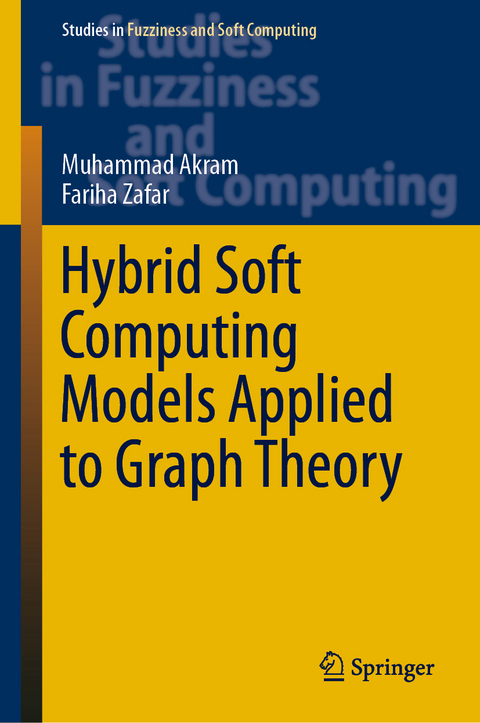
Hybrid Soft Computing Models Applied to Graph Theory
Springer International Publishing (Verlag)
978-3-030-16019-7 (ISBN)
This book describes a set of hybrid fuzzy models showing how to use them to deal with incomplete and/or vague information in different kind of decision-making problems. Based on the authors' research, it offers a concise introduction to important models, ranging from rough fuzzy digraphs and intuitionistic fuzzy rough models to bipolar fuzzy soft graphs and neutrosophic graphs, explaining how to construct them. For each method, applications to different multi-attribute, multi-criteria decision-making problems, are presented and discussed. The book, which addresses computer scientists, mathematicians, and social scientists, is intended as concise yet complete guide to basic tools for constructing hybrid intelligent models for dealing with some interesting real-world problems. It is also expected to stimulate readers' creativity thus offering a source of inspiration for future research.
Dr. Muhammad Akram received MSc degrees in Mathematics and Computer Science, MPhil in Computational Mathematics and PhD in Fuzzy Mathematics. He is currently a Professor in the Department of Mathematics at the University of the Punjab, Lahore, Pakistan, where he has been serving as a PhD supervisor of more than 10 students. Dr. Akram's research interests include numerical solutions of parabolic PDEs, fuzzy graphs, fuzzy algebras, and fuzzy decision support systems. He has published 7 monographs and 300 research articles in international peer-reviewed journals. He has served as editorial board member of 10 international academic journals and as reviewer of 122 International journals, including Mathematical Reviews and Zentralblatt MATH. Dr. Fariha Zafar received her PhD degree in Mathematics and MPhil degree in Mathematics from the University of the Punjab, Lahore. She has introduced the notions of Soft Trees and Fuzzy Soft Trees during her MPhil research work. She has published 10 research articles in top-ranked international journals. Her research interests include fuzzy graphs, soft set theory, rough set theory and decision-making.
Rough Fuzzy Graphs.- Fuzzy Rough Graphs.- Intuitionistic Fuzzy Rough Graphs.- Fuzzy Soft Graphs.- Intuitionistic Fuzzy Soft Graphs.- Soft Rough Fuzzy Graphs.- Bipolar Fuzzy Soft Graphs.- Soft Rough Neutrosophic Influence Graphs.
| Erscheinungsdatum | 18.04.2019 |
|---|---|
| Reihe/Serie | Studies in Fuzziness and Soft Computing |
| Zusatzinfo | XXV, 434 p. 279 illus., 1 illus. in color. |
| Verlagsort | Cham |
| Sprache | englisch |
| Maße | 155 x 235 mm |
| Gewicht | 847 g |
| Themenwelt | Informatik ► Theorie / Studium ► Künstliche Intelligenz / Robotik |
| Technik | |
| Schlagworte | Bipolar Fuzzy Soft Graphs • Connected Fuzzy Subgraphs • Detection of Bipolar Disorder • Fuzzy Directed Bridge • Irregular Fuzzy Soft Graphs • Irregular Rough Fuzzy Digraphs • Isomorphic Rough Fuzzy Digraphs • Multi-criteria Selection of Objects • Neutral Rough Fuzzy Digraphs • Regular Fuzzy Soft Graphs • Rough Fuzzy Directed Block • Rough Fuzzy Directed Bridge • Soft Rough Fuzzy Digraphs • Soft Rough Neutrosophic Graphs • Soft Rough Neutrosophic Influence Graphs • Strongest Directed Path • Suitable Career Selection Problem • Traffic Densities of the Paths • Underlying Crisp Digraph • Upper Approximate Fuzzy Digraphs |
| ISBN-10 | 3-030-16019-X / 303016019X |
| ISBN-13 | 978-3-030-16019-7 / 9783030160197 |
| Zustand | Neuware |
| Haben Sie eine Frage zum Produkt? |
aus dem Bereich


